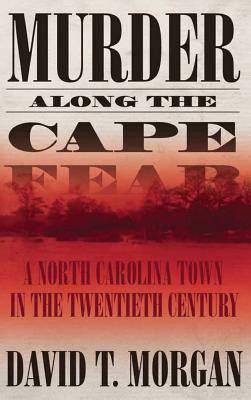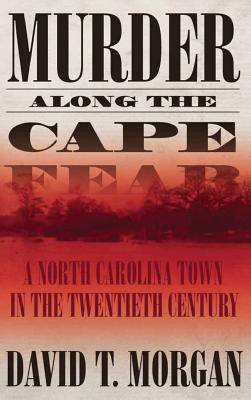
- Retrait gratuit dans votre magasin Club
- 7.000.000 titres dans notre catalogue
- Payer en toute sécurité
- Toujours un magasin près de chez vous
- Retrait gratuit dans votre magasin Club
- 7.000.0000 titres dans notre catalogue
- Payer en toute sécurité
- Toujours un magasin près de chez vous
Murder Along the Cape Fear
A North Carolina Town in the Twentieth Century
David T Morgan
Livre relié | Anglais
51,95 €
+ 103 points
Description
Murder Along the Cape Fear is the story of Fayetteville and Fort Bragg, North Carolina, during the twentieth century. Seen through the eyes of a native son, this is the tale of one - a distinguished historian - who lived through some of it and heard about much of it from friends and relatives. In this hundred-year journey the town was profoundly impacted by the establishment of Fort Bragg 10 miles to its west. Throughout this hundred-year history, murder seems to be the scarlet thread that stitched the town into infamy. The book demonstrates that Fayetteville was by no means innocent prior to the coming of Fort Bragg. Nor did all of the crime and evil emanate from Fort Bragg after 1918. As for murder, there was an abundance of killing that had no connection with Fort Bragg, but the most sensational murder case of the century involved Jeffrey MacDonald, a Green Beret Army captain and physician who received three life terms in federal prison for killing his pregnant wife and two daughters. While many other Fort Bragg soldiers were involved with murders along the Cape Fear, murders were also committed by transient civilians and local citizens like the famous inventor of the M-1 carbine, Marshall "Carbine" Williams, and Velma Barfield, who poisoned her mother and three other people. In all, about two dozen murder cases-some highly publicized and some not-are woven into this story about a North Carolina town in the twentieth century. Engagingly told, this book is a wonderful blend of history, lore, and murder.
Spécifications
Parties prenantes
- Auteur(s) :
- Editeur:
Contenu
- Nombre de pages :
- 270
- Langue:
- Anglais
Caractéristiques
- EAN:
- 9780865549661
- Date de parution :
- 18-09-05
- Format:
- Livre relié
- Format numérique:
- Genaaid
- Dimensions :
- 161 mm x 235 mm
- Poids :
- 562 g

Les avis
Nous publions uniquement les avis qui respectent les conditions requises. Consultez nos conditions pour les avis.






